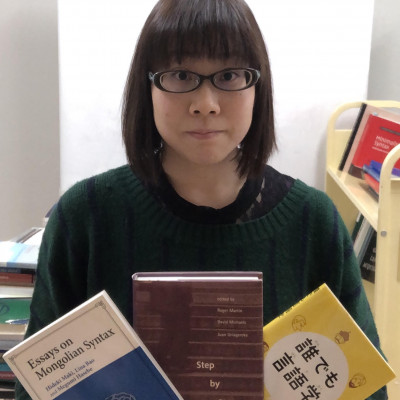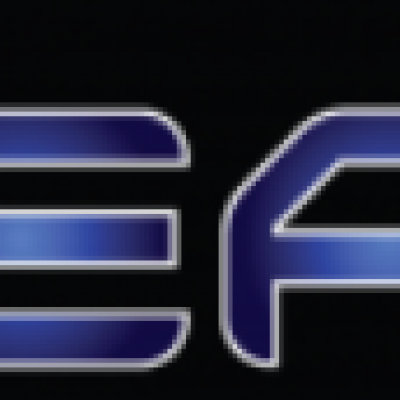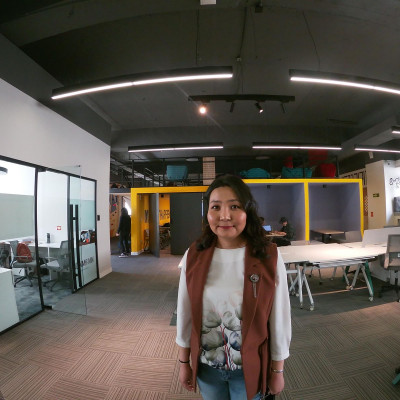Sessions / All Learners
ER 101. What is ER? The basics - QUESTION TIME (Thursday session) #1663
This is the question time connected to the recorded session in the video below. Please watch the video BEFOREHAND. We will not play the video during the session. This is an open mic session to discuss the topics in the video and share ideas. There is a second session on Monday
Testing Extensive Reading #1638
Should we assess Extensive Reading? What do we mean by assessment? How should we do it?
APERC: Annual Paper-based Extensive Reading Club In China #1547
In China, test prep programs such as TOEFL and SAT, SSAT are an eternal topic for those students who study English. However, how to balance the intensive and extensive reading and how to assist test prep by guided academic extensive reading are questions need to be answered in reality.
How to do ER with no money and few resources - QUESTION TIME (Thursday session) #1661
This is the question time connected to the recorded session in the video below. Please watch the video BEFOREHAND. We will not play the video during the session. This is an open mic session to discuss the topics in the video and share ideas. There is another session on Monday.
Exploring Extensive Reading Practices in Arabic #1607
During this session aspects of an action research project encouraging students to engage in extensive reading (ER) practices in Arabic that took place online will be discussed. The session will review some of the issues students face when reading in Arabic and showcase how the researchers sourced appropriate free online reading materials to include in the project. The online ER activities to engage students in reading will also be explained.
A Machine Learning Method for Estimating the Difficulty Level of Graded Readers #1587
A machine learning method was investigated to analyze how syntax affects reading difficulty, first categorising graded reader texts into parts of speech, then using a sliding window method to count different patterns of word types. Next we used clustering to check whether the features could be classified by difficulty level.
Extensive Reading is the Key for Better Language Development #1538
Why is extensive reading important for language learning? How can students be motivated to read for pleasure? How can instructors enhance a student’s incidental language learning through extensive reading? Join us to learn answers to these questions.
Building a Nation of Readers #1563
How to build a nation of readers in Saudi Arabia with participation and ideas from the audience.
Contradictory Info on Graded Reader levels. Which do we Believe? #1569
Graded Readers are supposedly "graded" according to their difficulty. While the grading may be internally consistent for a specific publisher, comparing even a few of the most popular series shows that books with identical headword counts can be labelled at widely different levels. Background info and suggestions will be offered.
Motivating Chinese Higher Vocational College Students in English Reading #1598
In an ongoing English reading course at a Chinese higher vocational college, a variety of extensive reading programs have been carried out. Students’ homework, feedback and the results from course questionnaire indicate that some are motivated to read and many find the course interesting and inspiring.
Current Issues and Development of Graded Readers for Japanese Language Learners #1543
In this presentation, we will first give an overview of the currently available graded readers for Japanese language learners and point out some of the problems. Then, we will explain how we have developed our new graded readers for beginning Japanese learners.
Six Content Elements that Motivate Learners to Read #1709
To motivate learners, reading content must instill genuine interest. We need to feel a connection to the material which makes us want to find out more. This paves the way for a lifelong, sustainable - and enjoyable - reading habit. In this session, featuring examples from National Geographic Learning graded readers, we will discover six elements that inspire English learners to go beyond a superficial glance at a passage to explore and analyze the text.
How to Start an ER Program without Graded Readers #1692
In this presentation we will explore other resources which are available online and which can be downloaded and printed out for your students. These resources can be used in class or even taken home since ER does not need to be done in the classroom. Students can read in their own time at their own pace. Participants will be provided with information on many resources that are available – well over 2000 texts!
Experiencing ER in Thailand #1659
Extensive Reading has yet to gain popular support in Thailand and is not widely implemented at the high school level. This presentation will describe the realities of setting up, running, and managing an Extensive Reading Project and integrating it into the curriculum to form a fundamental base in the instruction of English. After 5 years we will demonstrate the scores our students achieve in comparison to other Thai schools in the national O-Net tests, and progression over the years through the annual Oxford Online Placement Test that students take. We will conduct a survey about student attitude toward reading at the end of July 2021 just before the conference to give an up-to-date reflection from students about their feelings toward reading in general and extensive reading in particular. There will also be a reflection from teachers about implementing XReading as a tool when the COVID pandemic forced a move away from physical copies of books and the use of the MReader website.
How AI Devices Help Young Learners with Extensive Reading at Home? #1558
It will be a pre-recorded video on how AI devices help young leaners on extensive reading at home. Chinese presentation with English subtitles.
Using graded readers to supplement courses #1704
This presentation will provide an overview of Halico Online and how five graded readers from the 10-ways-to series were used to supplement a presentation and debate course at a Japanese university.
Welcome to LoungERs - an informal monthly chat about ER topics #1657
Major events such as ERAW and ERWC are immensely stimulating for attendees. In addition to attending Insightful presentations and workshops, attendees have chances to meet and talk with other educators using ER from far and wide. These chance conversations can spark new lines of thinking and areas of collaboration. The coronavirus pandemic has taught us that technology can bring us together despite being separated by physical distance. In 2020, the JALT ER Special Interest Group started a monthly informal gathering using Zoom meetings. The monthly meetings let friends of ER meet a little more regularly. People who come by share ideas, talk about favorite books, or sometimes discuss research. We aim to keep things informal, and building camaraderie is just as important as deepening our extensive reading knowledge. Please come by, and learn more about how you can join in.
Academic Dishonesty on Xreading: A Cautionary Tale #1603
Xreading is very useful for assessing students’ progress, but as with any digital technology, teachers need to be aware of unscrupulous students who may try to cheat. The presenters will provide useful tips to minimize cheating, detect cheaters, and effective strategies to deal with students who have been caught cheating.
Assessments in an ER Program: Contradicting the ER Approach? #1583
This presentation will share how alternative assessments can be used as a measurement tool in an ER program without contradicting the nature of ER approach. Some examples will be shared to illustrate the points. It is expected that this session can contribute ideas particularly on assessments in an ER program.
The Ideal MReader Set-Up for Your Kind of School #1570
MReader is free software, offered by the Extensive Reading Foundation that allows students and teachers to track their reading of over 8000 published readers in a gamified and motivating fashion. We will discuss how to tailor MReader for your specific educational context.
Using a Chatbot to Promote Thai Students' Basic Reading Skills #1539
In this paper, I explain what a conversation agent (chatbot) is and demonstrate how a story can be adapted and be made flexible through the use of a Dialogflow conversation agent. I shall also present the feedback and opinions of the students who have interacted with the agent on a voluntary basis. Recommendations will also be given.
Let’s Talk About “Sadness”: Lessons From the Virtual Book Club Activity #1542
Virtual Book Club can be a means for readers to be engaged with the story through group discussions. Talking about the book with other readers can give them the opportunity to share their thoughts, feelings with the hope that they will perceive reading as a meaningful activity.
A 10-Point Guide for Big, Easy Reading Programs #1545
Research clearly shows that your learners can effectively download English into their brains by extensive (BIG) and EASY reading. The presenters will share a 10-Point guide for doing so with online extensive reading, but this guide works for any reading system, and with any class, group, company, or school.
An Investigation on Indonesian Freshmen's Vocabulary Knowledge #1602
The present study investigated two groups of freshmen’s vocabulary levels pre- and post-Extensive Reading programs in their respective universities.
Graded Readers as Intralingual Literary Translations #1562
In this short presentation, I will approach graded readers from the perspective of Translation Studies, where they constitute a marginal phenomenon. I will discuss their research potential within the areas of intralingual and literary translation, and I will seek to start a discussion.
Xreading: What’s New and What’s Next #1605
Xreading is an online library that gives students access to thousands of graded readers and allows instructors to track their students’ reading progress. In this presentation, the founder of Xreading will explain the new features and improvements, and review what is planned for the future.
Harvest Growth, Seeding the Future #1687
Report on the activities of PERC.
Get to know your local ER Association #1685
This session will be an open platform for attendees to learn about their local ER associations, in many regions of the world. Come and join them to learn more about the ER community in your area. Each association will have their own breakout room. These include PERC China (Publink Extensive Reading Club), MERA (the Mongolian Extensive Reading Association), IERA (the Indonesian Extensive Reading Association), JALT-ERSig (the Extensive Reading Special Interest group of JALT), TEERA (the Taiwan English Extensive Reading Association); MENA (the Middle-east and North African Extensive Reading Association), KEERA (the Korean Extensive Reading Association); JERA (the Japan Extensive Reading Association); and the forming groups in Thailand, Vietnam, Ethiopia, the UK. There will also be a breakout room for people interested in starting their own ER Association. Some ERF board members will be there to advise.
Get To Know PERC #1688
PERC up with Extensive Reading
Get to Know MENA ERF (Middle East and North Africa) #1689
During this session, representatives from the MENA ERF will provide an overview of their activities and the extent to which others are welcomed to become involved.
Get to know TEERA (Taiwan English Extensive Reading Association) #1691
An informal discussion about how to implement and assess an ER program.
Extensive reading and vocabulary learning – before and during reading #1616
Plenary
Extensive reading can achieve many learning goals besides being a very enjoyable pastime. In this talk I focus on vocabulary learning, considering what vocabulary knowledge needs to occur before extensive reading and how extensive reading can contribute to vocabulary learning.
As part of the knowledge needed when extensive reading begins, I look at word part knowledge and knowledge of how to learn and how these contribute to reading and vocabulary learning. Vocabulary learning during extensive reading is most effective if learners read at the right level because this allows the conditions of repetition, retrieval, varied meetings and elaboration to occur. If learners know how to manage their reading, they can increase their vocabulary knowledge, their reading skill and their fluency in reading.
2021 Language Learner Literature Awards #1705
Award Ceremony
Join us to find the winners of the Language Learner Literature Awards, celebrating the best books of the last year. The categories are: Very Young Learners; Young Learners; Adult and Adolescents: Beginners; Adult and Adolescents: Intermediate; and Adult and Adolescents: Upper intermediate and Advanced.
Reading for Beginners #1554
How to acquaint Educators and Parents on teaching beginners how to read in a fun and easier way.
Write your own original Graded Reader story! #1768
Do you have an original story to tell? Could it work as a Graded Reader for teenage learners of English? Join this session with a Commissioning Editor from Oxford University Press to see if your idea is interesting enough to take forward.
How to Motivate Students Through Reading Marathon #1585
This session will give brief summary of how to manage and organize a mass reading competition called Reading Marathon.
Lounge and Reception #1521
Join a breakout room to meet our sponsors, ask presenters questions or chat with other people at the conference.
While sessions are going on, you may have to find "Breakout Rooms" in your Zoom toolbar, then "join" the lounge. There are also breakout rooms for: ER and Younger learners ER at Elementary ER at Middle School ER at High School ER at University ER with Adults ER with no money or resources Practical Activity ideas Researching ER Representaion in Learner literature Using readers to change the world
ER practice through a Reading Marathon #1582
This workshop will assist you to find motivation for reading and create enjoyable reading practice through Reading Marathon.
ER 101. What is ER? The basics - QUESTION TIME (Monday session) #1777
This is the question time connected to the recorded session in the video below. Please watch the video BEFOREHAND. We will not play the video during the session. This is an open mic session to discuss the topics in the video and share ideas.
How to do ER with no money and few resources - QUESTION TIME (Monday session) #1778
This is the question time connected to the recorded session in the video below. Please watch the video BEFOREHAND. We will not play the video during the session. This is an open mic session to discuss the topics in the video and share ideas.













































